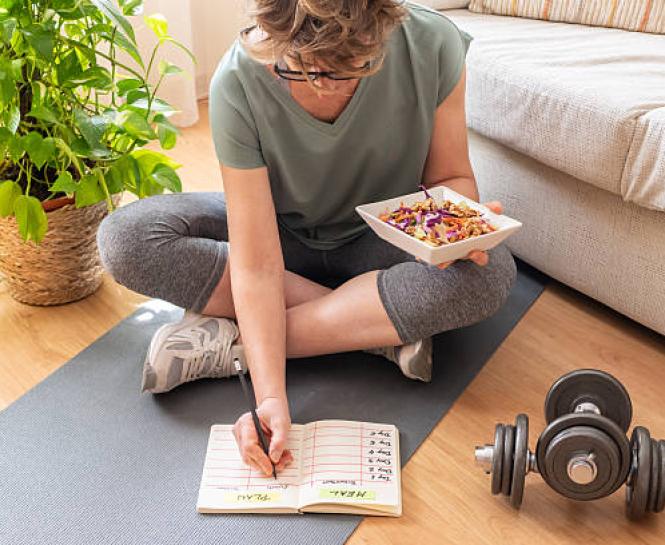What is social anxiety disorder?
“Social anxiety is something we have all experienced, like being anxious in a job interview or when giving a presentation in school,” said Lawrence Ferber, Ph.D., Director of Behavioral Health Central Intake Services at Catholic Health. “Social anxiety disorder, however, causes avoidance behavior that significantly impacts daily life, including personal relationships and job or school performance. Often, social anxiety disorder co-exists with other conditions like depression and substance abuse."
Social anxiety disorder is the second most diagnosed anxiety disorder, with nearly 15,000 Americans affected, according to the Anxiety & Depression Association of America (ADAA). ADAA notes that social anxiety's defining feature is intense anxiety or fear of being judged, negatively evaluated, or rejected in a social or performance situation.
Dr. Ferber explained that people with social anxiety disorder often go years without seeking help or treatment. “It is vital to get professional help if you have symptoms of social anxiety disorder,” he said. “Getting diagnosed means the sooner you can be treated with proven, effective treatments and return to a productive quality of life."
What are the symptoms of social anxiety disorder?
"A common misconception is that social anxiety disorder is just shyness that will go away," said Dr. Ferber. “Social anxiety disorder is more than that—it is a medical condition that presents with debilitating psychological, emotional, behavioral and physical symptoms. Not everyone with social anxiety disorder has the same symptoms, but all will exhibit some type of avoidance behavior.”
Emotional and behavioral symptoms
- Extreme self-consciousness causes fear of being judged negatively, humiliated or embarrassed in a social situation.
- Extreme anticipatory anxiety about interacting with strangers and their perception of you.
- Extreme fear of appearing nervous in front of others.
- Analyzing interactions after a social interaction to find flaws.
- Using alcohol or other substances to be more comfortable in social situations.
Physical symptoms
- Racing heart
- Blushing
- Sweating
- Nervous stomach ("butterflies" in the stomach)
- Trembling
- Short of breath
- Shy bladder (difficulty urinating when near other people)
- Feeling that your mind has “gone blank”
Avoidance behaviors
The following situations are likely to be avoided by a person who has social anxiety disorder.
- In-person conversations (prefer to rely on technology instead)
- Shopping in public
- Going on a job interview
- Engaging with coworkers or classmates
- Eating in front of others
- Dating
- Using public restrooms
- Attending parties
How is social anxiety diagnosed?
A medical professional such as a primary care physician (PCP), psychiatrist or psychologist will diagnose social anxiety disorder according to the criteria listed in the Diagnostic and Statistical Manual of Mental Disorders (DSM-5), published by the American Psychiatric Association.
- Continuous, persistent fear or anxiety about social situations because you believe you will be humiliated, embarrassed or judged negatively.
- Intense anxiety that is not in proportion to the situation.
- Anxiety or distress from social situations that interfere with daily life.
- Avoidance of social situations that cause anxiety or enduring those situations with intense fear and anxiety.
- Fear or anxiety in social situations not explained by a medical condition, substance abuse or medication.
How is social anxiety treated?
Therapy
A mental health professional will help you:
- Identify triggers that cause your anxiety in social situations.
- Develop coping mechanisms to be in social situations without feeling distressed, fearful or anxious.
- Learn social skills to make it easier to be with strangers and engage with familiar people like coworkers or classmates.
- Practice relaxation techniques to lessen anticipatory anxiety about social situations.
- Reframe negative or spiraling thoughts that make you self-conscious in social situations.
- Adopt lifestyle habits, like exercising, eating healthy and managing stress, that are key to reducing anxiety.
- Set goals for yourself. For example, taking small steps to start participating in social situations, such as lunch with a coworker, shopping in public, and making small talk at checkout.
- Find self-help techniques that work for you, like daily journaling.
Medication
“Medication, when combined with talk therapy, is an effective treatment for people with social anxiety disorder,” said Dr. Ferber. “Your doctor will advise you about dosage, how long you need to take the medication and when you may no longer need medication.”
Commonly prescribed medications for social anxiety disorder include:
- Antidepressants
- Selective serotonin reuptake inhibitor (SSRI)
- Serotonin-norepinephrine reuptake inhibitors (SNRI)
- Anti-anxiety medications
- Benzodiazepines
Will my social anxiety return?
“Overcoming social anxiety disorder can be initially challenging, but committing to your treatment plan will lessen the anxiety, fear and distress that comes from being in or thinking about social situations,” said Dr. Ferber. “You may still experience social anxiety at times, but it no longer has to escalate to being psychologically and physically debilitating and causing you to miss out on enjoying life.”
Dr. Ferber explained it is essential to keep up with your treatment, take medications as prescribed and check in with your mental health professional if you are concerned about returning or new symptoms.
Find Care at Catholic Health
Find a Catholic Health doctor near you. Or call 866-MY-LI-DOC (866-695-4362).






